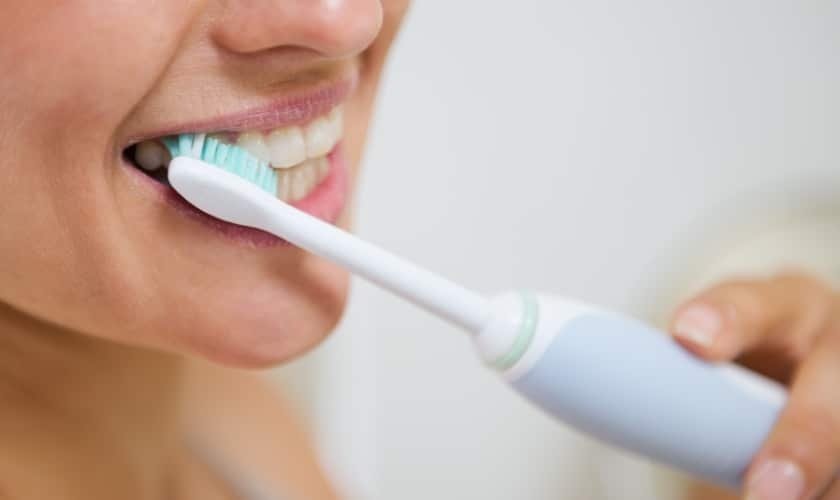Maintaining good oral health as an adult is more than just having minty breath and a bright smile; it’s essential to your overall well-being. As we age, the risk of dental problems such as gum disease, tooth sensitivity, enamel wear and even oral cancer increases.
But here’s the good news: a few simple habits can go a long way. With consistency and know-how, you can keep your gums and teeth healthy even in your later years.
Here are six oral health tips every adult should follow to keep their mouth in peak condition:
Maintain the Basics: Brushing and Flossing
Good oral health starts with the basics, which are consistently brushing and flossing to remove food debris from teeth. Use a fluoride toothpaste and toothbrush with soft bristles to gently brush your teeth.
Brush for at least two minutes each morning and night. Proper and consistent brushing removes plaque, reduces the risk of cavities and helps prevent gum disease. Remember to get a new toothbrush every 3 to 4 months or sooner if the bristles become frayed.
Flossing once a day can significantly reduce plaque and bacteria buildup in areas your toothbrush can’t reach, like between your teeth. Different flossing objects you may explore to see what works for you include:
- String floss
- Dental picks
- Water flosser
Eat a Healthy Diet
What you consume directly impacts your oral health. Reduce the intake of acidic and sugary foods and drinks, which can erode enamel and feed harmful bacteria.
Instead, opt for crunchy vegetables and fruits, cheese, yogurt, nuts and lean proteins. Add foods rich in calcium and phosphorus to your diet to strengthen your teeth naturally.
Also, remember to drink enough water throughout the day. While it keeps your body hydrated, it does so much for your dental health, like:
- Helping rinse away food particles
- Neutralizing acids
- Keeping your mouth moist
- Lowering the risk of bad breath, dry mouth and cavities
Experts recommend that men should drink about 3.7 liters of water per day, while women should drink around 2.7 liters.
Don’t Ignore Bleeding Gums
Are your gums bleeding during your brushing or flossing routine? Don’t shrug it off because bleeding isn’t a normal occurrence. It could be a sign of inflammation caused by plaque buildup, indicating early stages of gum disease, such as gingivitis, or even the beginnings of periodontal disease.
If left untreated, these conditions can progress, eventually destroying the bones that support your teeth and causing tooth loss. The earlier you get help, the better. You want to book a dental checkup when you notice bleeding gums.
These dentists in Avon Lake OH add that improving your daily oral hygiene habits can play a major role in reversing early inflammation. Incorporating an antibacterial mouthwash and ensuring you reach the gum line with a soft-bristled brush helps disrupt the bacteria responsible for the irritation. By combining diligent at-home care with expert guidance, you can stop the progression of gum disease and safeguard your smile for years to come.
Protect Your Teeth from Grinding
Teeth grinding or bruxism is a problem often linked to stress, sleep issues or bite misalignment. It can result in jaw pain, tooth wear and fractures. If you wake up with jaw pain and soreness, custom night guards could be a quick fix.
Many people rely on dental appliances like night guards to deal with issues like teeth grinding, jaw misalignment or sleep-related problems. Choosing a custom-fitted option from a trusted dental lab can make a big difference because it fits better, feels more comfortable and works more effectively than the one-size-fits-all versions you’ll find at the store.
Interestingly, persistent pain in areas like the canine teeth can sometimes indicate underlying issues like malocclusions and gum disease. Learn more here.
Quit Smoking and Tobacco Use
Tobacco has so many side effects on your health that it’s hard to ignore.
Some of its side effects, just to your oral health alone, include:
- Persistent tooth staining and bad breath
- Increased risk of gum disease and tooth loss
- Slower healing after dental procedures
- Higher chance of developing oral cancers
- Reduced success rates of dental implants.
Quitting tobacco is one of the most powerful steps you can take to protect your mouth and your overall health. Consult your doctor or dentist about resources and support systems that work, including counseling, medications and nicotine alternatives.
Prioritize Regular Dental Visits
It’s important to visit the dentist at least every six months for a professional cleaning and thorough exam, even if you don’t experience pain or noticeable symptoms. These regular checkups help remove hardened plaque (tartar) that brushing and flossing can’t handle.
Regular checkups also allow your dentist to detect early signs of tooth decay, gum disease, infections and even oral cancers. Catching these issues early not only prevents complications but also reduces the need for more invasive and costly treatments later on.
Final Words
While adulthood comes with many responsibilities, make sure your oral health doesn’t get overlooked. Build consistent and intentional habits now to prevent painful problems and costly treatments down the road.
And remember, if you’re experiencing persistent dental discomfort or pain in specific areas, talk to your dentist about your symptoms.
 Online Clock
Online Clock